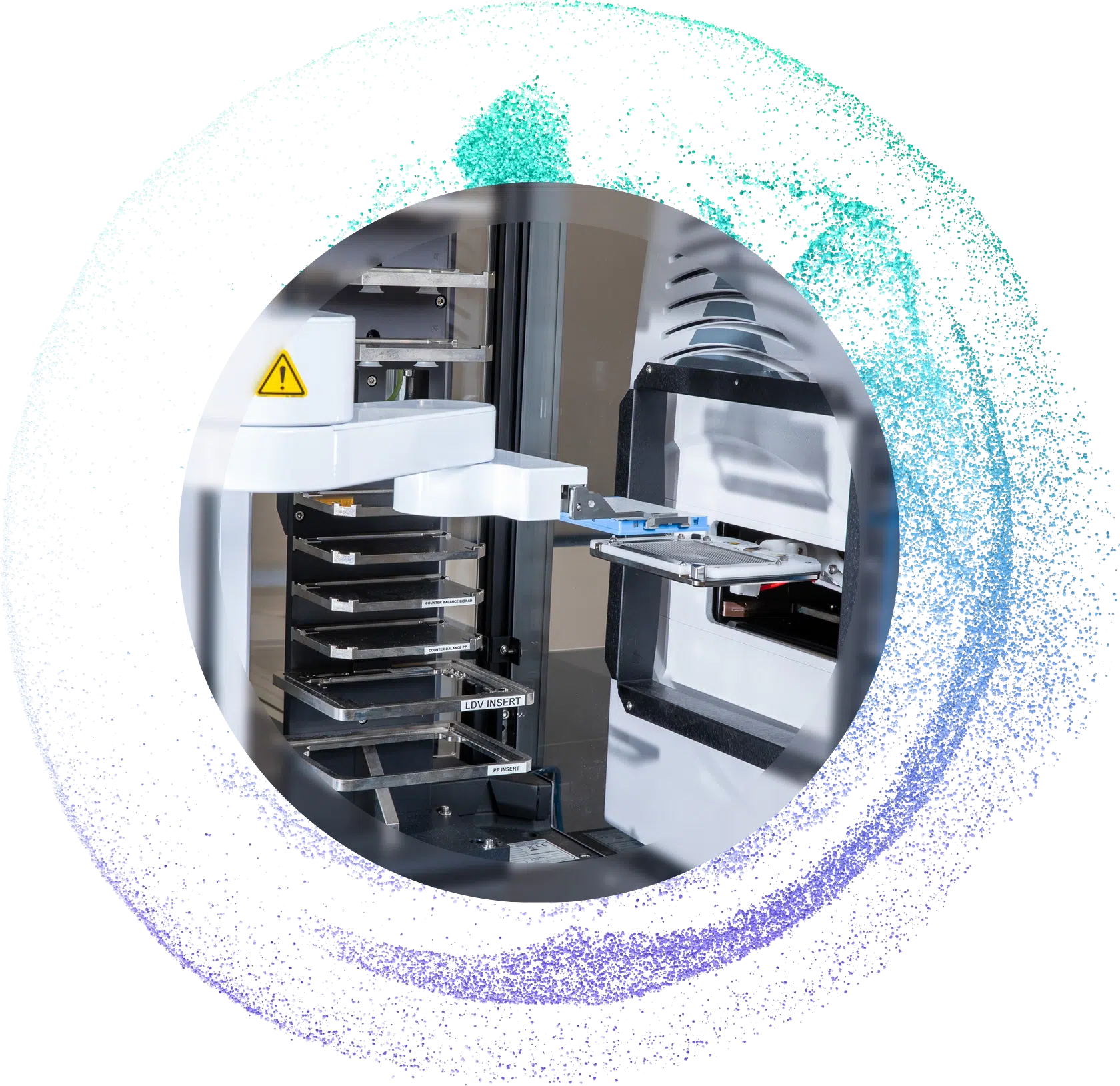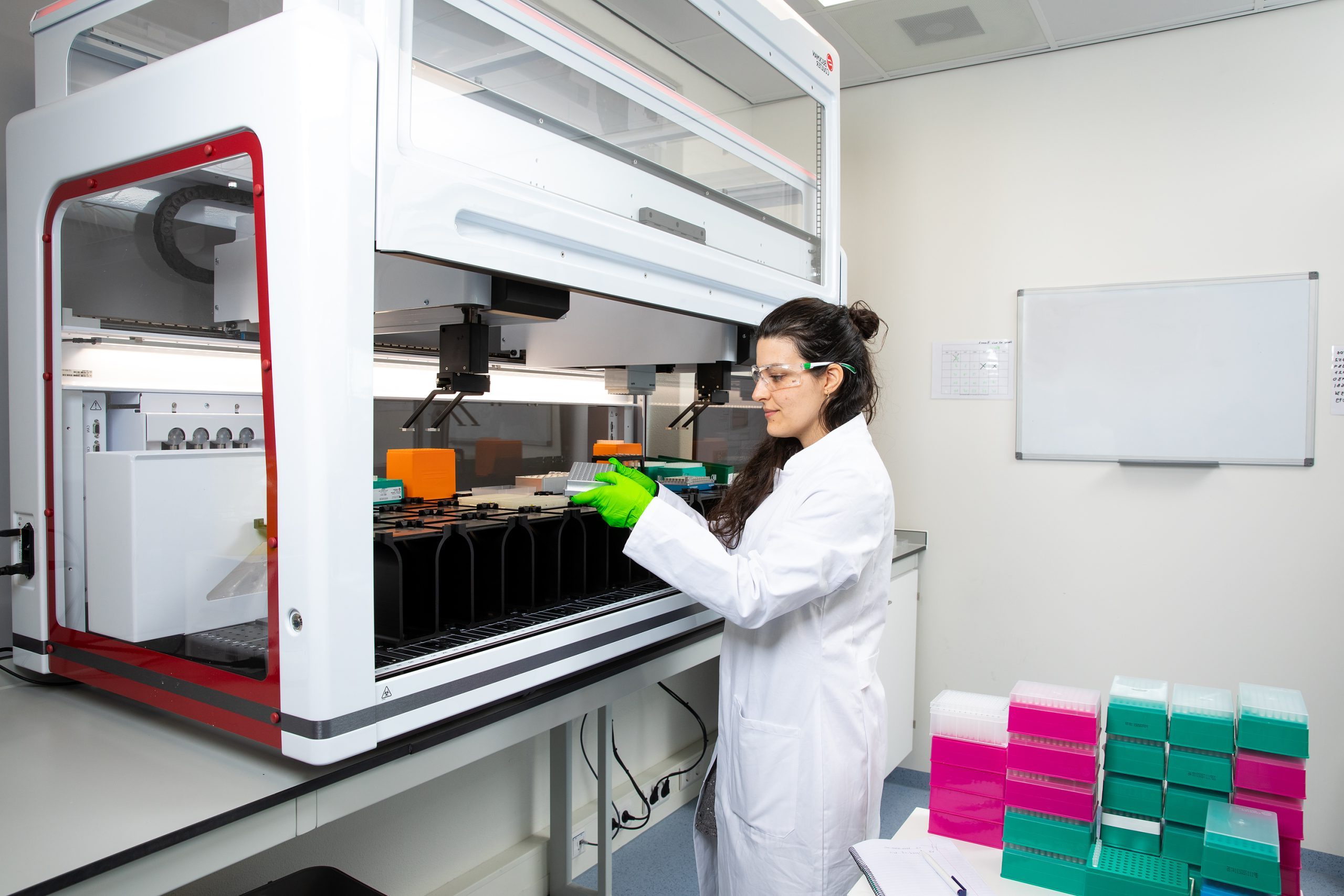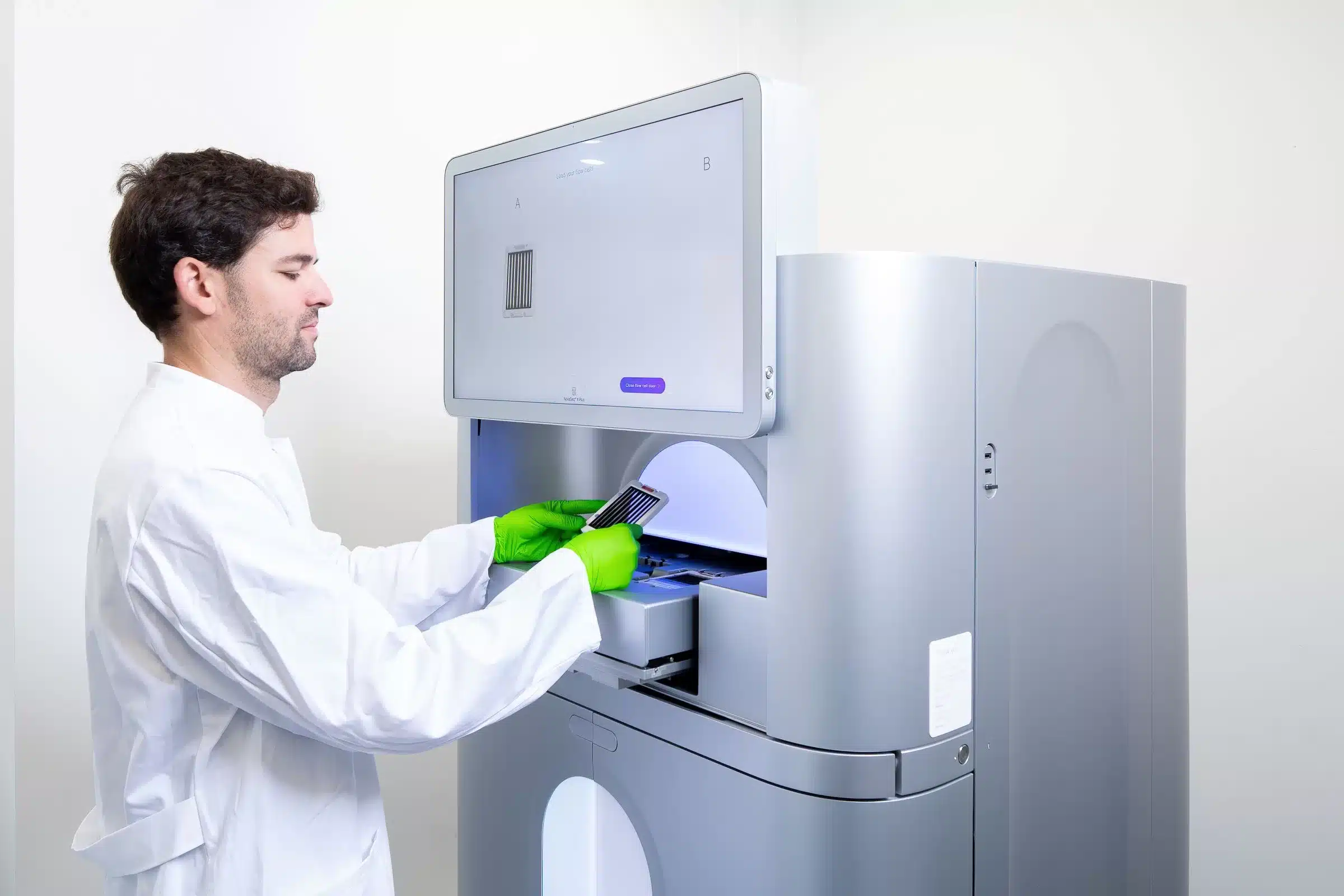Discovery-seq High throughput RNA sequencing
Discovery-seq is a tailored method to facilitate transcriptomic phenotyping of thousands of samples. Used for compound screens, drug mode of action studies, and in general for projects that require high-throughput RNA sequencing.

Discovery-seq
Transcriptomics for thousands of samples
Discovery-seq is an in-house developed method to perform 3' bulk RNA sequencing on thousands of samples within one experiment. It is the method of choice to gather large-scale transcriptomics data for drug screens and other applications that require large bulk RNA sequencing datasets. It is compatible with most animal species' cell lines and organoid models. Projects with a low amount of samples are more suitable for our bulk RNA sequencing service.
The method exploits the same molecular biology as our current single-cell and bulk RNA sequencing methods. Hence, Discovery-seq is different from the more known DRUG-seq. In the Discovery-seq protocol, we have improved sensitivity and eliminated the PCR bias that can occur in DRUG-seq. Our aim was to develop a method with higher accuracy and lower cost.
Clients utilizing our Discovery-seq services send us washed and frozen cells/organoids in plates. Our protocol relies on a standardized workflow using multiple robots and automatized steps that ensure high-throughput and high-quality results. Our standard pipeline provides an exploratory report to assess the performance of the experiment and initial interpretation of the results, but we can also provide an end-to-end service, including custom data analysis by our bioinformaticians.
Discovery-seq is ideally suited to be integrated into existing screening workflows. Screening plates can be evaluated on viability assays, cell painting or high-content screening. Once the data has been acquired, it is as easy as washing the cells pellets/organoids, followed by snap freezing and submitting them to us to perform Discovery-seq. Multimodal data can then be integrated to have a better understanding of the impact of your experimental conditions.
Applications of Discovery-seq
Drug mode of action
Performing RNA sequencing on thousands of samples allows for a comprehensive understanding of the drug's mode of action across different cell types, conditions, or individuals. This analysis can identify common and unique gene expression patterns, enhancing the precision and reliability of the drug.
High-throughput compound screens
High-throughput RNA sequencing in drug compound screens allows for the simultaneous analysis of the effects of numerous compounds on gene expression. This can speed up the process of drug discovery by identifying promising compounds more quickly and efficiently, and can also provide insights into the potential side effects and therapeutic targets of these compounds.
Large-scale bulk RNA sequencing
Large scale studies analyzing on the effects of various conditions or treatments will benefit from Discovery-seq. For example, scientists can use it to understand how gene expression changes when the cells/organoids are exposed to different environmental conditions, or genetic modifications. Or, analyse exposure to a variety of perturbations, such as high-throughput CRISPR or siRNA screens.

Get the Information Guide
Download our information guide to access an overview of Single Cell Discoveries, explore our Discovery-seq services, learn how to get started, and gain more valuable insights.
Benefits of Discovery-seq
Obtain RNA sequencing data of thousands of samples
Our Discovery-seq service allows you to obtain transcriptomics data at large scale within one experiment. In just a few weeks turnaround time, you will receive a large data set speeding up your research projects.
Analyze the effects of a variety of perturbations
Obtain transcriptomics data of samples treated with a variety of perturbations such as small molecules, siRNAs, CRISPR-Cas9, and antibodies.
Quick turnaround times and cost-efficient experiment
Our automated and standardized protocols allow for quick turn around times and cost-efficient bulk RNA sequencing per sample.
Discovery-seq compared
Without high-throughput RNA sequencing
Traditional screens
- Visual markers
- Limited quantification
- High-througput transcriptomics not affordable
With high-throughput RNA sequencing
Discovery-seq
- Transcriptome-wide information
- Analyze genes and pathways
- Quantitative
- Cost-effective
- Compatible with upstream visual methods
Discovery-seq workflow

Step 1
Consultation
Every project starts with one or more consultations to discuss the project set up. Our experienced PhD-level team, including our R&D scientists, discusses your biological question, sample type, planning, data analysis options, and other wishes.

Step 2
Sample Preparation
The client performs the experiment in-house. Ideally, cells/organoids are seeded in 384-well plates, potentially treated, then washed in PBS (maximum volume left behind: 10 µL), and frozen. The frozen plates are then shipped to our lab, where we will perform the Discovery-seq protocol.

Step 3
Processing in Our Lab
Our experienced team performs the Discovery-seq protocol in our lab. We sequence the libraries on our Illumina NovaSeq X Plus. We’ll do multiple QC checks and keep you informed of the status of your project.

Step 4
Data Analysis
We will provide you with the raw data and our exploratory data reports. We can provide custom data analysis projects by our bioinformaticians.
Deliverables
As with all of our services, we provide ongoing support from our single-cell sequencing specialists. For each Discovery-seq project, we provide the following.
- Regular updates during sample processing, including QC
- Raw sequencing data (FASTQ files)
- Gene count tables
- QC report of mapping results (UMIs per sample)
- An explanation from our data team about data quality metrics
- All raw sequencing data, results and reports are processed on EU servers, and securely encrypted using an AES (Advanced Encryption Standard) algorithm with a 256-bit key, before being delivered to the customers and archived.
Wondering if this service can
help answer your biological question?
Request a quote today and find out how our expertise can support your research.
FAQ
We currently support cell lines from any animal species, as well as, organoids.
The ideal seeding density is between 5,000 and 10,000 cells (or the equivalent for organoids), but we can work with as few as 2,500 cells.
We require the cells/organoids to be washed in PBS (maximum volume left behind: 10 µL) to avoid interference with our lysis and reverse transcription.
Our standard service includes the mapping of the sequencing reads, together with its quality metrics. We also provide an overview of the performance of each well in a plate, based on unique genes and UMI recovered.
Information Guide Discovery-seq
Discover our Discovery-seq service
Download our information guide to access an overview of Single Cell Discoveries, explore our Discovery-seq service, learn how to get started, and gain more valuable insights.